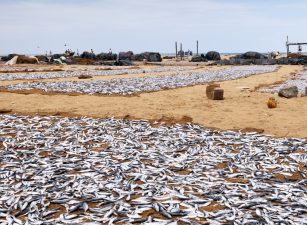
Thanks to a new US study, the world has a benchmark on how environmental pollution is toxic to our babies.
Green Prophet’s Sophie had her own nightmare come to life when her son was almost poisoned by bleach during Passover cleaning in Israel. In light of the scary risks of poisoning, a new US study has released the cost of environmental pollution in kids.
We can only imagine what’s happening in the Middle East where polluters go on polluting without reprimand, like in Iraq’s rivers. Scary stuff people. Read on if you have kids, or care about tomorrow’s generation. The report is talking about lead, mercury, and connections to diseases and disorders such as autism, asthma, and childhood cancer.
In three new studies published in Health Affairs, Mount Sinai School of Medicine researchers reveal the staggering economic impact of toxic chemicals and air pollutants in the environment. They propose new legislation to mandate testing of new chemicals and also those already on the market.
Dr. Leonardo Trasande analyzed the costs of conditions — including lead poisoning, childhood cancer, asthma, autism, and attention deficit hyperactivity disorder — associated with exposure to toxic chemicals. He calculated the annual cost for direct medical care and the indirect costs, such as parents’ lost work days, and lost economic productivity caring for their children, of these diseases in children.
The annual cost in the United States to be an estimated $76.6 billion. The breakdown includes: lead poisoning ($50.9 billion), autism ($7.9 billion), intellectual disability ($5.4 billion), exposure to mercury pollution ($5.1 billion), ADHD ($5 billion), asthma ($2.2 billion), and childhood cancer ($95 million).
“Our findings show that, despite previous efforts to curb their use, toxic chemicals have a major impact on health care costs and childhood morbidity,” said Dr. Trasande. “New policy mandates are necessary to reduce the burden of disease associated with environmental toxins. The prevalence of chronic childhood conditions and costs associated with them may continue to rise if this issue is not addressed.”
Scary new toxins to worry about
Dr. Trasande found that while exposure to lead and costs associated with asthma had diminished, new chemicals and new environmentally-induced diseases, like attention deficit hyperactivity disorder, have increased the overall burden of disease.
He and his colleagues propose a three-pronged approach to reduce the burden of disease and rein in the effects of toxic chemicals in the environment. These are tools policy makers anywhere can implement.
Conduct a requisite examination of chemicals already on the market for potential toxicity, starting with the chemicals in widest use, using new, more efficient toxicity testing technologies.
Assess all new chemicals for toxicity before they are allowed to enter the marketplace, and maintain strictly-enforced regulation on these chemicals.
Bolster ongoing research and epidemiologic monitoring to better understand, and subsequently prevent, the health impact of chemicals on children.
“Implementing these proposals would have a significant impact in preventing childhood disease and reducing health costs,” said a colleague in the study. “Scant legislation has been passed to reduce the risks associated with childhood exposure to toxic chemicals in the environment. Even though only six chemicals have been banned, we have seen dramatic benefits from that action alone. The removal of lead from gasoline and paint is an example of the importance of this type of regulation.”
Read more on kids and the environment:
UAE Kids Pledge to the Save the Fish
Green Books Capture Imaginations in Egypt
Egyptian Children Interpret MDGs With Disposable Cameras
Ecoventure “Lab” Gives Emirate Children Hands On Experience
Nile Water Kills 17000 Egyptian Children Each Year
Image via wwworks



